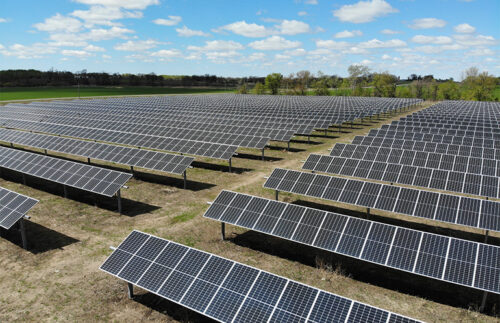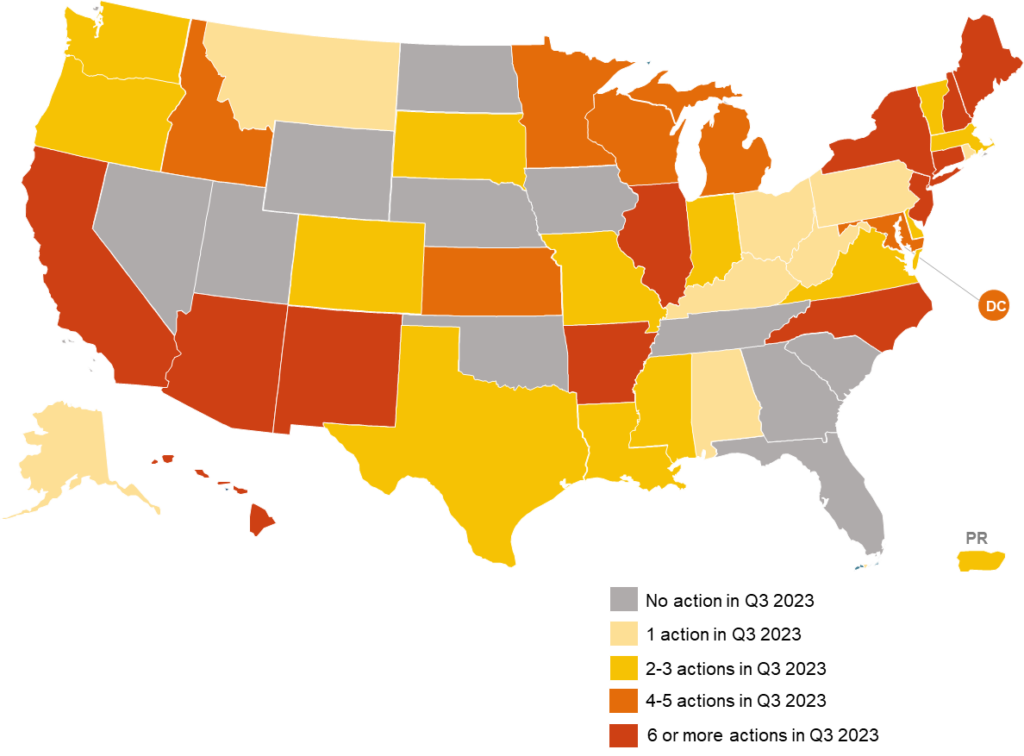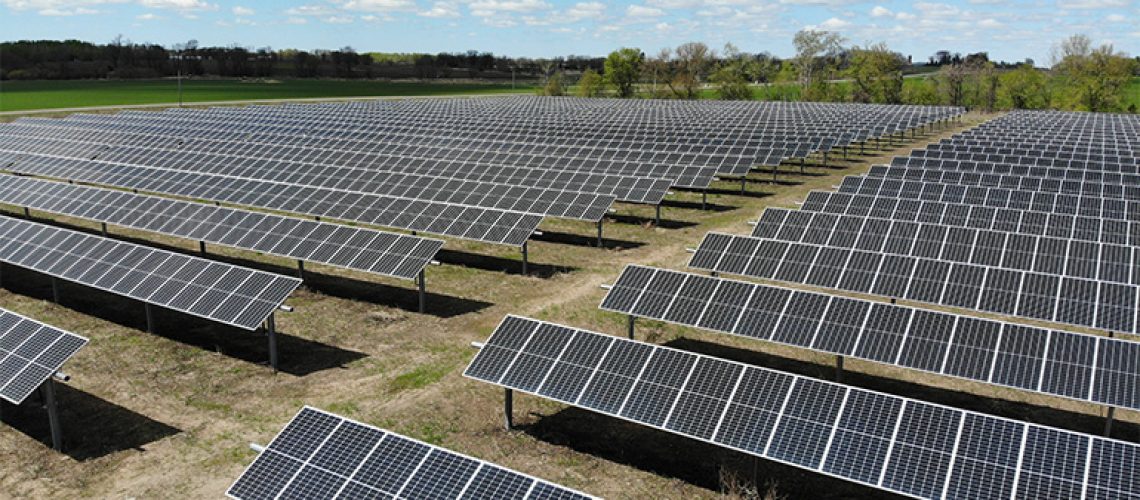
A community solar project by New Energy Equity.
The N.C. Clean Energy Technology Center (NCCETC) released its Q3 2023 edition of “The 50 States of Solar.” The quarterly series provides insights on state regulatory and legislative discussions and actions on distributed solar policy, with a focus on net metering, distributed solar valuation, community solar, residential fixed charges, residential demand and solar charges, third-party ownership and utility-led rooftop solar programs.
The report finds that 39 states, plus the District of Columbia and Puerto Rico, took some type of distributed solar policy action during Q3 2023 (see figure below), with the greatest number of actions continuing to address net metering policies (47), and residential fixed charge or minimum bill increases (44), and community solar policies (38). A total of 157 distributed solar policy actions were taken during Q3 2023, with the most actions taken in California, North Carolina, New York, Hawaii, Maine and New Mexico.
Q3 2023 Policy Action on Net Metering, Rate Design and Solar Ownership

The report identifies three trends in solar policy activity taken in Q3 2023: (1) states utilizing carve-outs and incentives to promote low-income community solar participation, (2) utilities working to align distributed generation compensation tariffs across jurisdictions, and (3) states pursuing rooftop and community solar incentive funding through the U.S. Environmental Protection Agency’s Solar for All program.
“This quarter, policymakers in several states took action to improve engagement of low- and moderate-income (LMI) households for community solar facilities,” said Vincent Potter, Policy Analyst at NCCETC. “New Jersey’s permanent community solar program requires all facilities to serve at least 51% LMI customers. Minnesota and Washington State regulators are reviewing LMI-focused access rules within their community solar programs.”
The report notes the top five distributed solar policy actions of Q3 2023:
- The New Jersey Board of Public Utilities approving a community solar program;
- California regulators filing a proposed decision on virtual net metering;
- Maine lawmakers enacting a solar successor program bill;
- The North Carolina Utilities Commission approving changes to commercial net metering; and
- Michigan utilities planning distributed generation program expansions.
“We continue seeing increased complexity in the new net metering and net billing program structures being approved, many of which use time-varying credit rates or require customers to be on a time-of-use tariff,” said Brian Lips, senior policy project manager at NCCETC.
News item from the N.C. Clean Energy Technology Center



